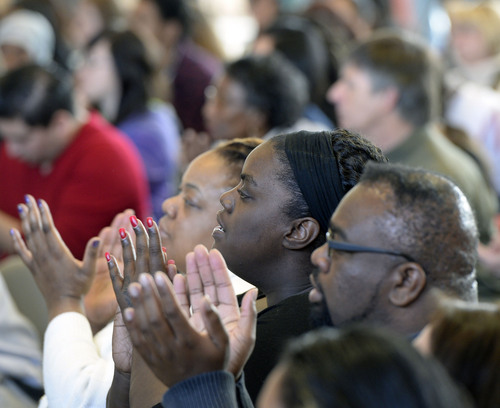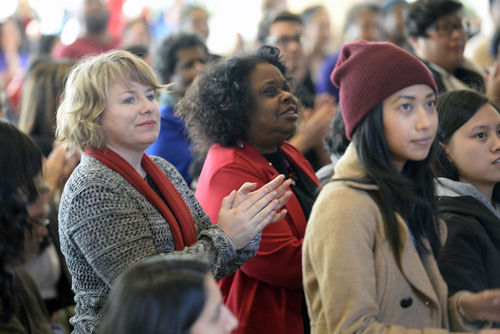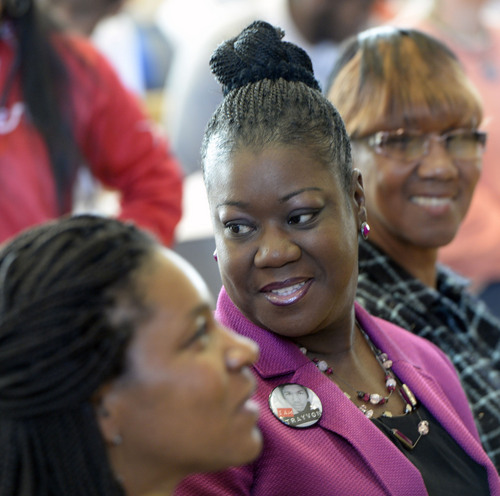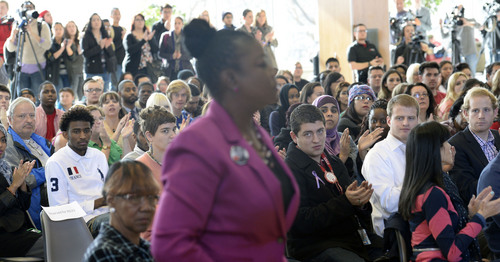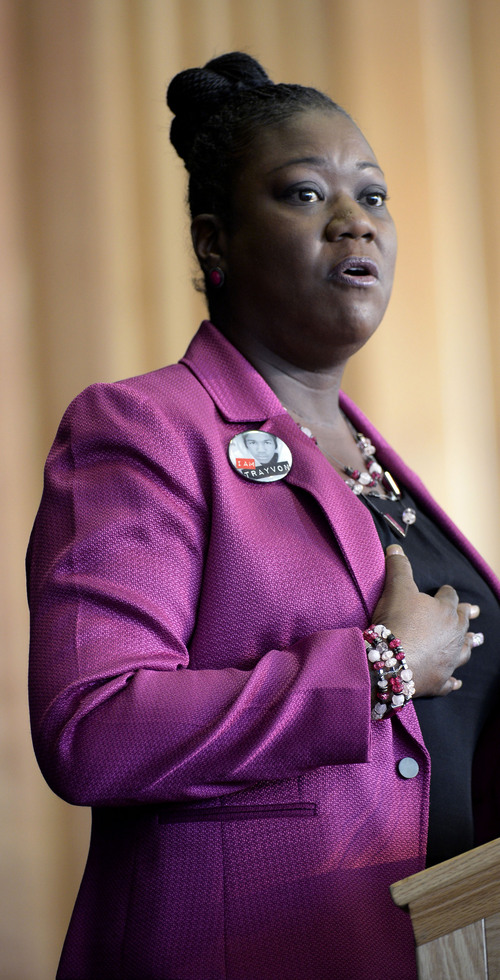This is an archived article that was published on sltrib.com in 2014, and information in the article may be outdated. It is provided only for personal research purposes and may not be reprinted.
Before her son Trayvon Martin was shot and killed, Sybrina Fulton had a normal life.
"You could not have gotten any more average than my family," she told a crowd of hundreds at the University of Utah on Thursday. "I was the average person, but through powers unforeseen to me there was a message ... that said there is something wrong with the United States."
Though she has no plans to leave her home state of Florida or the U.S., which she calls the best country in the world, Fulton wants to share her own message: "Don't think for one second racial profiling doesn't happen. Don't think for one minute even in your community of Salt Lake City it doesn't happen ... Racism is still alive. Racial profiling is still alive. Injustice is still alive."
Martin, 17, was killed walking back from buying Skittles and a drink at a store two years ago. Neighborhood watch volunteer George Zimmerman considered the unarmed Martin suspicious, followed him and shot him during an ensuing struggle. Zimmerman's controversial acquittal of murder charges in July ignited an intense national conversation about race.
Fulton doesn't think her son's death was about the hoodie he was wearing — everyone from Anderson Cooper to Facebook's Mark Zuckerberg wears a hooded sweatshirt, she said — or because he was walking slowly.
"What is a moderate rate to walk so you don't look suspicious?" she said. "At the end of the day, it's not about Trayvon. It's about the person that felt he was suspicious."
Fulton said her lowest point was when she saw her son's body dressed for a funeral.
"I had to look at my son for a final time, all dressed in white as if he's an angel going to a prom," she said, choked with emotion. "I will not get a chance to see my son graduate from high school ... The upside is I get an opportunity to save somebody else's child."
Her prescription for ending racial profiling starts with respect and self-esteem.
"When people are more confident about themselves they stop throwing rocks at other people, trying to judge other people," she said. "That will go so much further than changing laws."
Fulton's talk kicked off a week of Martin Luther King Jr. Day events at the U. Like King, Fulton's central message is one of non-violence and peace.
Seventeen-year-old KiAndre Stokes said he's long looked up to Fulton.
"I have a couple of idols, and one of them is Sybrina. She's not afraid to stand up for what she believes in," he said.
As a 6-foot, 2-inch black man Martin's age, the soft-spoken Stokes said he's been told his appearance could scare people, and he worries that something similar could happen to him.
"I worry about it every day," he said.
It's also a poignant and painful message for Dennis Barrett, whose son Lucas killed himself during a second year of graduate school at Columbia University in New York.
"It was touching. As she was saying, every parent shouldn't have to bury their kid," he said.
African-American teens aren't the only group affected by profiling. Also Thursday, U.S. Attorney General Eric Holder announced the Justice Department would expand its definition of profiling to bar federal agents from considering religion, national origin, gender and sexual orientation after years of pressure from civil rights groups.
That's good news to Rhonda Burton, a Layton mom and Muslim who wore a head scarf at the speech
"To me it's a good thing," she said. "There is a stereotype that goes along with [a hijab] that you're not American, you don't speak English."
For Fulton also, the message isn't about any one group.
"I want people to understand: Today it was racial profiling, and tomorrow it might be your situation," she said. "If we're not doing anything about it, we're part of the problem. Don't want until it comes to your front door."
Twitter: @lwhitehurst —
More events planned
See a calendar of Martin Luther King Jr. events here.


